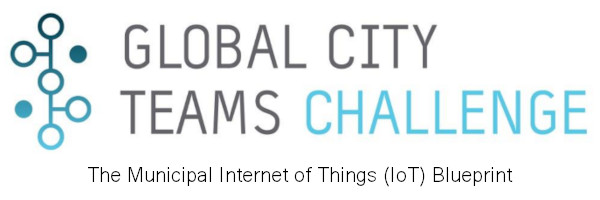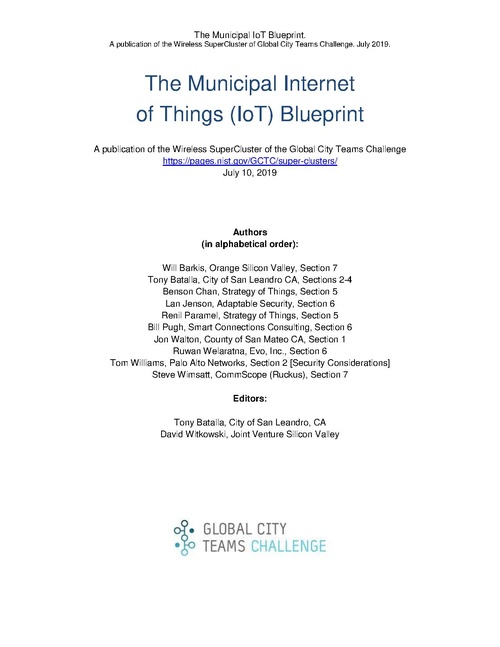Municipal IoT Blueprint
| Report | |
|---|---|
| Image | 
|
| Published | 2019-07-10 |
| Point(s) of Contact | Tony Batalla Benson Chan Lan Jenson Renil Paramel Bill Pugh Jon Walton |
| Organization(s) | Global City Teams Challenge NIST |
| Where | San Leandro CA |

| |
If you are a local government official or employed by a municipality, chances are by now you have heard the term “Smart City.” Perhaps you have even wondered what it means for your agency and, possibly, your constituents. However, while it is not difficult to find articles explicating the promise of smart cities it is, in fact, much harder to find examples of actual smart cities.
While this revelation may be surprising, it actually makes sense; a universally accepted definition of “smart city” does not exist because cities, counties, states and their equivalents throughout the world are tremendously varied. The issues that Jaipur, India are trying to understand and improve are likely to be different from those in Madrid, Spain – which are both different from Tampa, Florida. This is to be expected and, for smart communities to evolve, this variance must be embraced. Rather than seek a one-size-fits-all definition, government agencies should define their own meaning for what constitutes “smart” in terms that serve their goals and specific needs.
However, what smart communities will share is an underlying relationship with information and communications technology (ICT). Put another way, all smart communities will utilize, in some form or another, a varied collection of devices, networks, data and analytics. As a collective system, these pieces are often abstracted as one grand concept: the “Internet of Things” (IoT).2 The evolution of smart communities and IoT are tightly interwoven; practitioners often speak of them as synonyms for each other. For example, the term “connected city,” which some use in place of “smart city,” explicitly implies IoT; hence, the “connected” part of the equation. However, this can all be exhausting for government decision makers to keep up with, particularly for those who are not IT professionals and technologist